News
Effects of Ocean Acidification and Warming on Marine Echinoderms
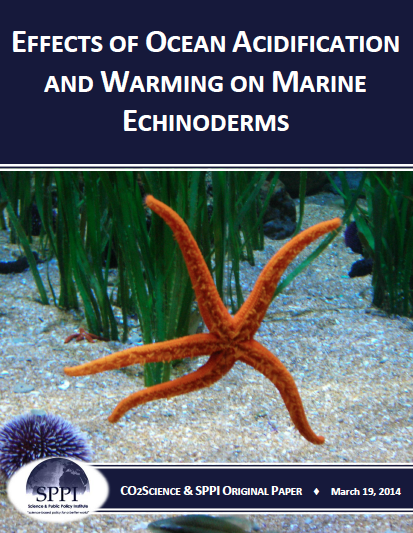
More News
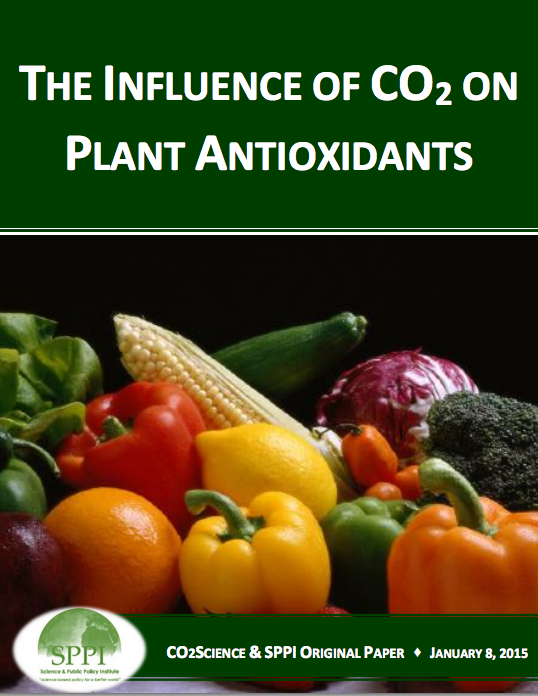
The Influence of CO2 on Plant Antioxidants
Center for the Study of Carbon Dioxide and Global Change. "The Influence of CO2 on Plant Antioxidants.” Last modified January 8, 2015. http://www.co2science.org/subject/a/summaries/antioxidants.php.
Released On: 1/16/2015
Views: 6494
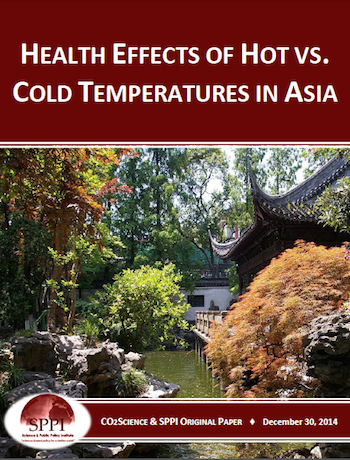
Health Effects of Hot Vs Cold Temperatures in Asia
Health Effects of Hot Vs Cold Temperatures in Asia.
Released On: 1/5/2015
Views: 6727
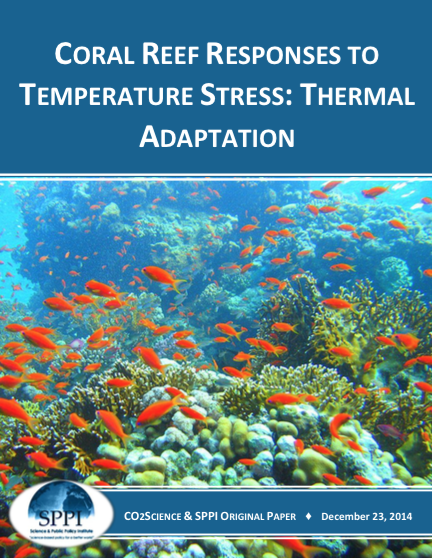
Coral Reef Responses to Temperature Stress: Thermal Adaptation
Coral Reef Responses to Temperature Stress: Thermal Adaptation. As living entities, corals are not only acted upon by the various elements of their environment,they also react or respond to them.
Released On: 12/29/2014
Views: 6362

Forest Growth Response to CO2
Forest Growth Response to CO2. By examining various properties of tree rings, researchers can deduce how historical increases in the air's CO2 concentration have already affected tree productivity and water use efficiency.
Released On: 12/29/2014
Views: 4987

Onward Marches the Great Pause
Onward Marches the Great Pause. Since October 1996 there has been no global warming at all (Fig. 1).
Released On: 12/29/2014
Views: 4029

RESPONSE OF VARIOUS MARINE ANIMALS TO OCEAN ACIDIFICATION AND WARMING
RESPONSE OF VARIOUS MARINE ANIMALS TO OCEAN ACIDIFICATION AND WARMING.
Released On: 12/8/2014
Views: 3686

FACE EXPERIMENTS AND GRASSLAND SPECIES
FACE EXPERIMENTS AND GRASSLAND SPECIES.
Released On: 12/8/2014
Views: 4261

EFFECTS OF OCEAN ACIDIFICATION ON FISH
EFFECTS OF OCEAN ACIDIFICATION ON FISH.
Released On: 12/8/2014
Views: 4276

Response of Fish to Ocean Warming
Response of Fish to Ocean Warming. According to the IPCC, CO2-induced global warming will be net harmful to the world's marine species.
Released On: 11/21/2014
Views: 4187

Long-Term Open-Top-Chamber Study of Sour Orange Trees
Long-Term Open-Top-Chamber Study of Sour Orange Trees. Eight 30-cm-tall sour orange tree (Citrus aurantium L.) seedlings were planted directly into the ground at the Agricultural Research Service's U.S. Water Conservation Laboratory in Phoenix, A ...
Released On: 11/21/2014
Views: 4214
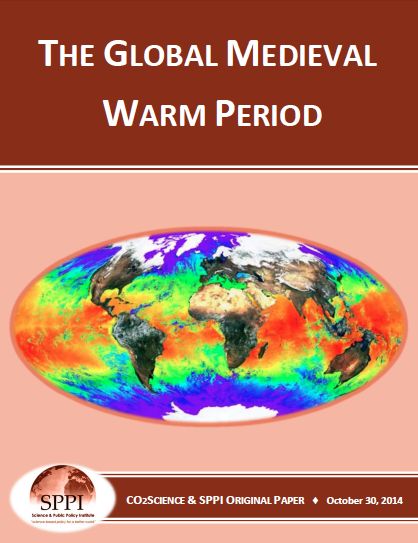
The Global Medieval Warm Period
The Global Medieval Warm Period. Between the 10th and 14th centuries AD, earth's average global temperature may have been warmer than it is today.
Released On: 11/21/2014
Views: 4029
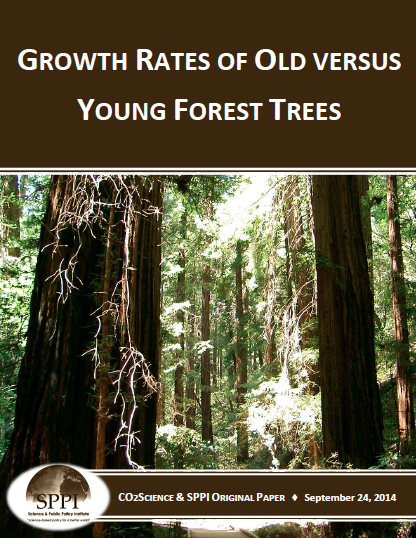
Growth Rates of Old versus Young Forest Trees
Growth Rates of Old versus Young Forest Trees. The planting and preservation of forests has long been acknowledged to be an effective and environmentally-friendly means for slowing climate-model-predicted CO2-induced global warming.
Released On: 9/30/2014
Views: 4291
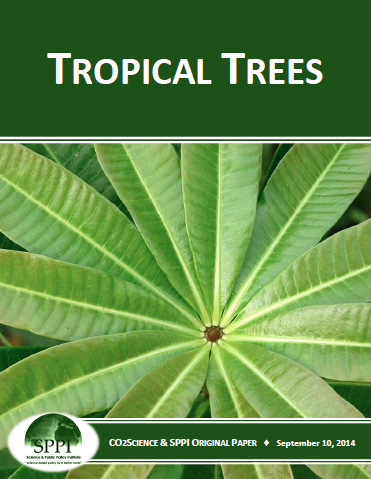
Tropical Trees
Citation: Center for the Study of Carbon Dioxide and Global Change. "Tropical Trees.”
Released On: 9/30/2014
Views: 4357
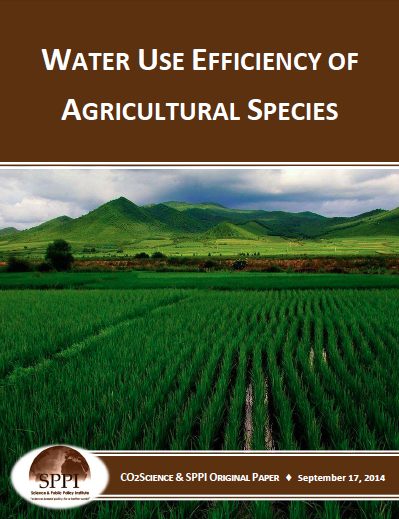
Water Use Efficiency of Agricultural Species
Water Use Efficiency of Agricultural Species.
Released On: 9/30/2014
Views: 4240
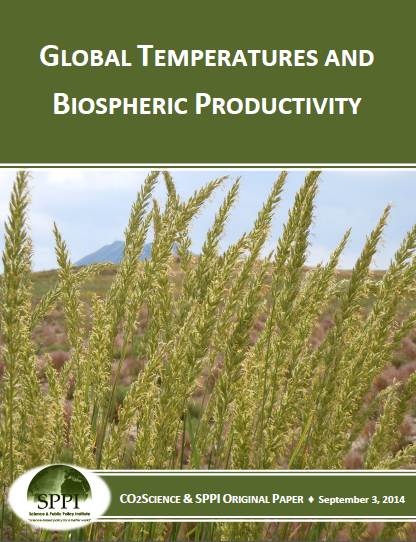
GLOBAL TEMPERATURES AND BIOSPHERIC PRODUCTIVITY
Global temperatures and biospheric productivity. Among the many climate-alarmist fears of CO2-induced global warming is the concern that the productivity of the biosphere will decline if global temperatures rise to the extent predicted by compute ...
Released On: 9/13/2014
Views: 4222
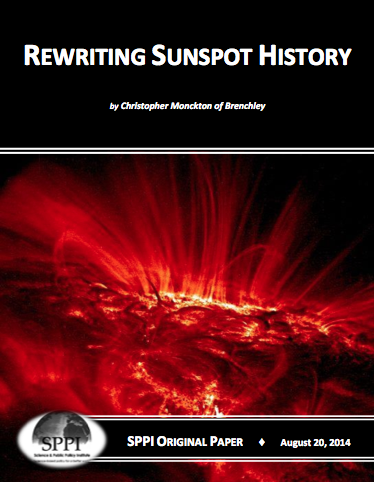
REWRITING SUNSPOT HISTORY
Rewriting sunspot history. In 2006, when I first made the mistake of writing publicly of my doubts about the Party Line on manmade global warming.
Released On: 9/13/2014
Views: 4284
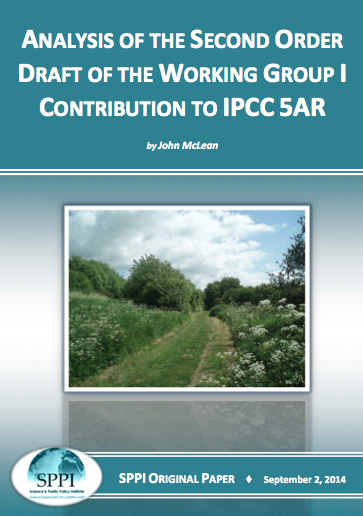
ANALYSIS OF THE SECOND ORDER DRAFT OF THE WORKING GROUP I CONTRIBUTION TO IPCC 5AR
ANALYSIS OF THE SECOND ORDER DRAFT OF THE WORKING GROUP I CONTRIBUTION TO IPCC 5AR. The preparation of IPCC Assessment Reports involves several stages.
Released On: 9/13/2014
Views: 4104
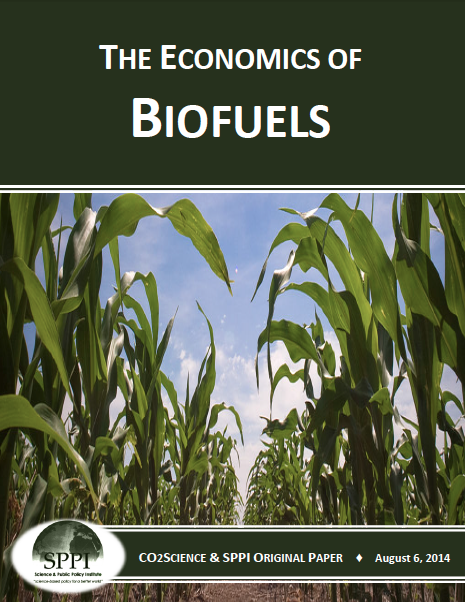
THE ECONOMICS OF BIOFUELS
The economics of biofuels. Aside from rejecting biofuel expansion and use for environmental reasons.
Released On: 9/13/2014
Views: 3944



